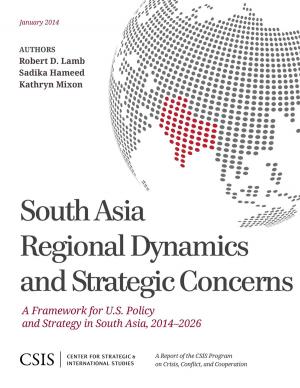Coping with Surprise in Great Power Conflicts
Nonfiction, Social & Cultural Studies, Political Science, International, International Security| Author: | Mark F. Cancian | ISBN: | 9781442280724 |
| Publisher: | Center for Strategic & International Studies | Publication: | March 23, 2018 |
| Imprint: | Center for Strategic & International Studies | Language: | English |
| Author: | Mark F. Cancian |
| ISBN: | 9781442280724 |
| Publisher: | Center for Strategic & International Studies |
| Publication: | March 23, 2018 |
| Imprint: | Center for Strategic & International Studies |
| Language: | English |
Surprise has always been an element of warfare, but the return of great power competition—and the high-level threat that it poses—gives urgency to thinking about surprise now. Because the future is highly uncertain, and great powers have not fought each other for over 70 years, surprise is highly likely in a future great power conflict. This study, therefore, examines potential surprises in a great power conflict, particularly in a conflict’s initial stages when the interaction of adversaries’ technologies, prewar plans, and military doctrines first becomes manifest. It is not an attempt to project the future. Rather, it seeks to do the opposite: explore the range of possible future conflicts to see where surprises might lurk.
Surprise has always been an element of warfare, but the return of great power competition—and the high-level threat that it poses—gives urgency to thinking about surprise now. Because the future is highly uncertain, and great powers have not fought each other for over 70 years, surprise is highly likely in a future great power conflict. This study, therefore, examines potential surprises in a great power conflict, particularly in a conflict’s initial stages when the interaction of adversaries’ technologies, prewar plans, and military doctrines first becomes manifest. It is not an attempt to project the future. Rather, it seeks to do the opposite: explore the range of possible future conflicts to see where surprises might lurk.















